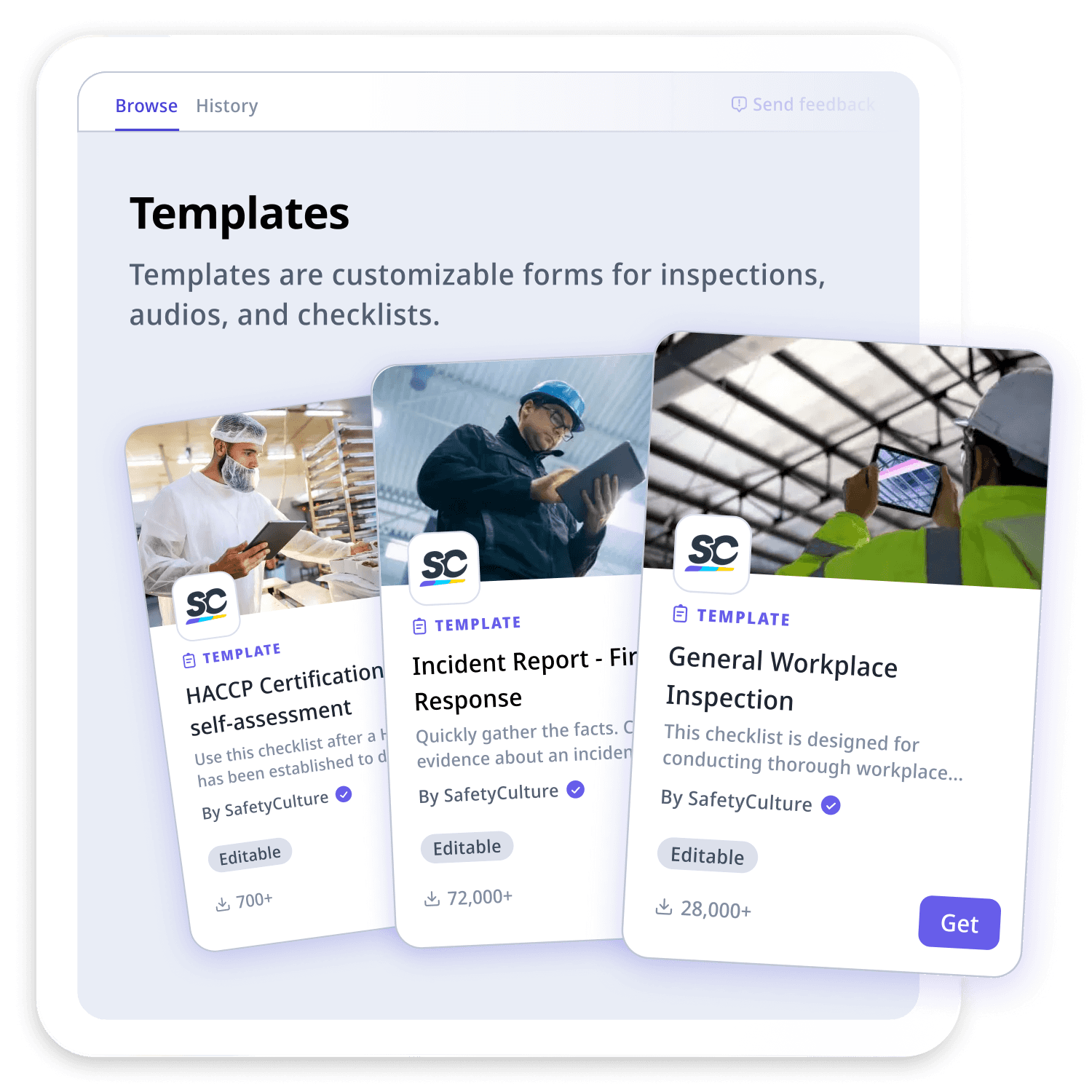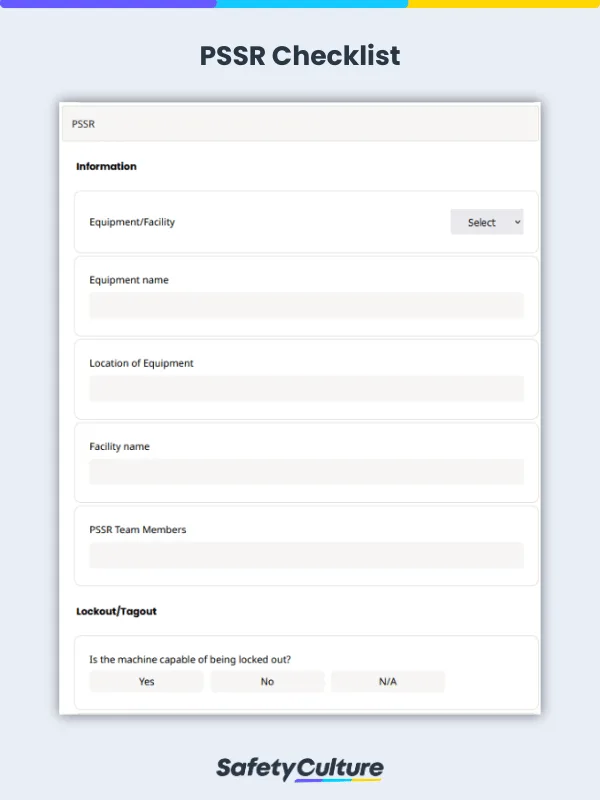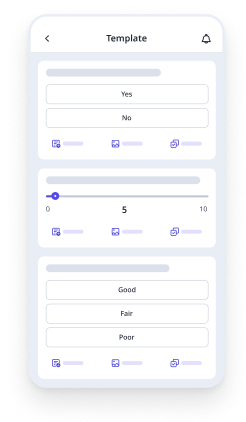Published 26 Sept 2025
Article by
3 min read
What is a PSSR?
A Pre-Startup Safety Review (PSSR) is a thorough safety inspection of a new or modified manufacturing plant or facility conducted before its commissioning. Sometimes called operational readiness review, a PSSR is conducted using a PSSR checklist with the intent of ensuring that the facility is safe for employees and that equipment installed will operate according to design specifications.
Conducting a PSSR helps businesses stay compliant with industry standards ( ISO 45001 ) and legislative requirements ( OSHA ) for occupational health and safety.
Scope of a PSSR
A PSSR covers multiple aspects of the workplace as a whole and ensures the existence of procedures that promote a safe working environment. Here is the scope of a PSSR divided into the 3 main workplace factors:
Facility
A PSSR aims to confirm that the facility is both safe for and conducive to work. It checks the facility’s electrical safety, ergonomics, control of noise and fire hazards, existing confined spaces, waste management, and environmental management.
Equipment
PSSR checks for procedures such as lockout/tagout and the existence of machine guarding or fall protection measures to control workplace risks. It also helps verify if the training was provided on the proper use of new or modified equipment and if potential risks that may arise from the use of new equipment are mitigated.
Staff
PSSR checks if the organization provides employee training on safe operating procedures such as using PPE, handling of chemicals and hazardous substances, as well as food safety practices.
How to Conduct a PSSR
PSSR procedures will vary depending on the facility and industry. In order to conduct one that is relevant and effective for a new or modified facility, the following steps should be followed:
Build a team and select a leader
A multidisciplinary team composed of staff with authority on engineering, operations, quality, safety, and security can help identify areas for improvement in the facility and assist in carrying out an effective PSSR. The PSSR team should be led by an authority in the organization who can delay the commissioning of a facility should the team discover sufficient risks that can compromise workplace safety.
Create a PSSR checklist
Creating a PSSR checklist will need the collaborative effort of the PSSR team members who will specify which aspects of the workplace should be checked, with particular consideration to the facility, equipment, employees, and operational processes.
Use the right tools
The PSSR team should be able to capture data on any areas for improvement identified during a PSSR and be able to quickly implement corrective actions. Delays in addressing safety issues will not only expose employees to potential workplace hazards but can also lead to costly delays in the commissioning of a facility.

Still looking for a checklist?
Search, filter, and customize 60,000+ templates across industries and use cases.

